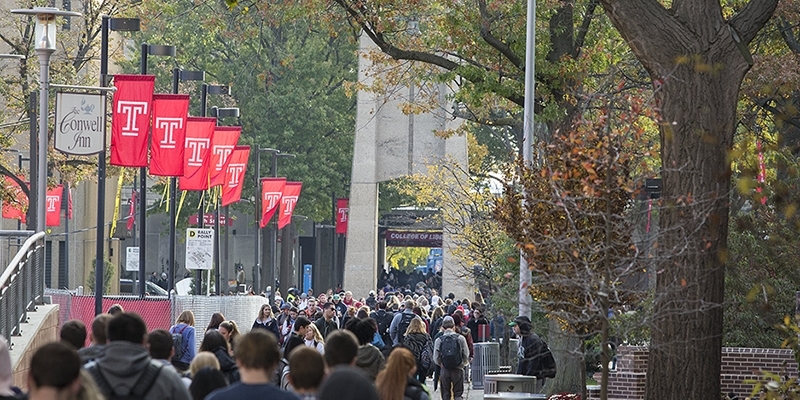Immigration order: Temple experts weigh in
Several Temple experts have provided insight in major media outlets on President Donald Trump’s order regarding immigration from seven countries and the debate that has ensued. Here, experts in law, history and media share deeper thoughts on the order’s significance.
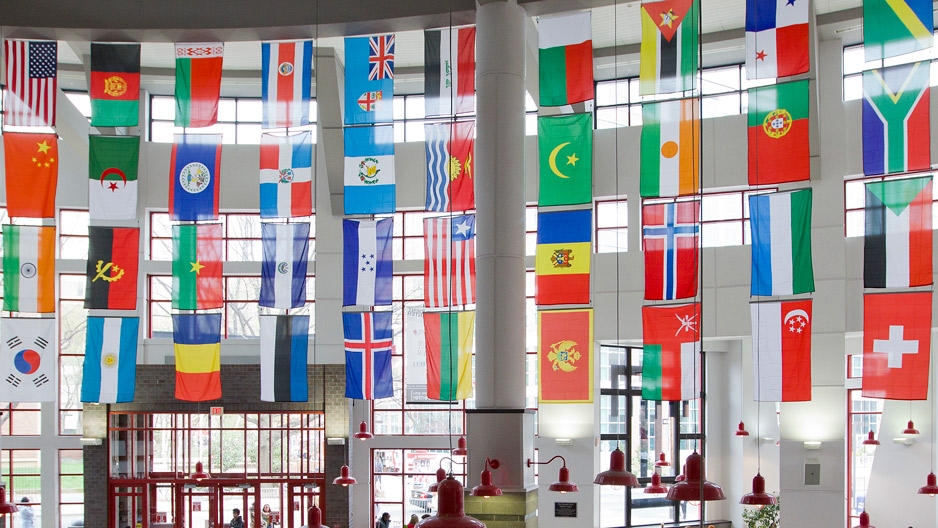
As developments and the debate over President Donald Trump’s executive order on immigration from seven countries continue, Temple experts provide insight into why the debate is important and key aspects missing from much of the media coverage of the issue.
Hear from some of the university’s experts in law, history and journalism below.
"Every American is either an immigrant or a descendant of someone who immigrated, so of course we should admire and respect immigrants. But the hard question that people don’t want to answer is: Given the fact that we should admire and respect immigrants, how many immigrants should we bring in every year?"
—Jan Ting, professor of law
"A ban that is widely perceived as targeting Muslims has alienated both current and potential allies and made it very difficult to recruit not just supporters for the United States, but also more specific types of assets that are necessary for our acquisition of intelligence and greater insight as to what’s really going on."
—Richard Immerman, Edward J. Buthusiem Distinguished Faculty Fellow in History
"There are huge international ramifications, too. The United States resettles by far the largest number of refugees of any country in the world, so if we stop resettling, it’ll be a huge blow to the international system."
—Jaya Ramji-Nogales, I. Herman Stern Professor of Law
"President Trump promised during the campaign that he would deal with immigration. He is simply fulfilling that promise—something many politicians fail to do once they are elected."
—Christopher Harper, professor of journalism
"The travel ban will test the limits of the president’s authority in the immigration context under the Constitution. Not since the Nixon Administration, at least, have we witnessed so dramatic a showdown between the president and the courts."
—Peter Spiro, Charles R. Weiner Professor of Law
Jan Ting, professor of law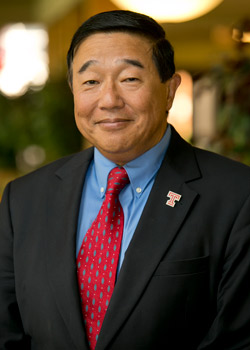
Beasley School of Law
Why does this debate around immigration matter?
Americans can’t make up their minds about immigration, but we all know we’re a nation of immigrants. Every American is either an immigrant or a descendant of someone who immigrated, so of course we should admire and respect immigrants. But the hard question that people don’t want to answer is: Given the fact that we should admire and respect immigrants, how many immigrants should we bring in every year?
What’s one aspect of the immigration order and debate that’s not being covered in the media?
We’re leaving out the question of who should be making these decisions. Do we make decisions in the street or in the courts, or should there be a process? Under our Constitution, Congress writes the laws and decides which immigration powers should be delegated to the president. Justice Jackson said in Youngstown Sheet & Tube Co. v. Sawyer (1952) that the president’s power is at its peak when he acts with the authorization of Congress and at its lowest level when he acts in defiance of Congress. In this area of immigration law, the exclusion of aliens from the United States, the president is acting with the authority of Congress, so his authority is at its peak. Congress can always change the law if they don’t like what the president is doing, but as long as Congress and the president are in tune with each other, they can do essentially anything with regard to the exclusion of non-citizens. When we ride a train, we want someone to have the power to pull the emergency brake. Regarding the entry of aliens into the United States, shouldn't someone have the power to pull the emergency brake? Congress has explicitly given that power to the president. As Chief Justice Roberts said of presidential power in Medellin v. Texas (2008), “The president’s authority to act, as with the exercise of any governmental power, ‘must stem either from an act of Congress or from the Constitution itself.’”
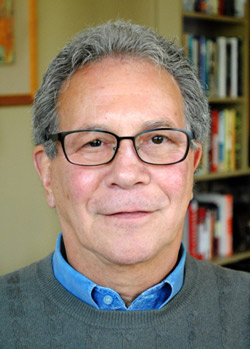
Richard Immerman, Edward J. Buthusiem Distinguished Faculty Fellow in History and Marvin Wachman Director of Temple’s Center for the Study of Force and Diplomacy
College of Liberal Arts
Why does this debate around immigration matter?
It is important on a number of different levels, and those levels have evolved and changed over time. In the most recent context, the executive order has put the doctrine of separation of powers to the test, and the rollout itself has signaled both domestically and internationally an inexperienced, and, to no small extent, incompetent administration. I think that is quite important.
In this regard, you can discuss or focus on the confusion that the rollout caused in terms of the different parties involved in implementing it and concerns about whether it was reviewed by the appropriate agencies, but also the fact that it excluded countries like Egypt, Pakistan and Saudi Arabia that really are more associated with terrorism than those on the list. That signals hypocrisy, if not something worse.
On another level, it has exacerbated the polarization of American political culture by provoking the question of who we are and how that happened. And it has strained, and I would say damaged, America’s image and reputation worldwide. Finally, particularly but not exclusively in the Middle East, a ban that is widely perceived as targeting Muslims has alienated both current and potential allies and made it very difficult to recruit not just supporters for the United States, but also more specific types of assets that are necessary for our acquisition of intelligence and greater insight as to what’s really going on.
What’s one aspect of the immigration order and debate that is not being covered in the media?
I would say that the coverage initially, and I think still predominantly, has been on the domestic implications and consequences of the ban—those people who were at airports or literally in flight and got caught in the middle, and very unfortunately, all sorts of things like that. I think that coverage is certainly justifiable. The human cost requires a tremendous amount of attention. But I also think that the international dimensions and the consequences or the implications for America’s counterterrorism efforts worldwide, particularly in the Middle East, have not received adequate consideration. That is evolving. I think more and more there’s coverage, most frequently in those outlets that concentrate on foreign affairs and on the possible consequences to America’s global posture and interests. But most of the media are understandably still primarily covering the impact on refugees coming to the United States or other immigrants.
I think that the international effects are enormous and counterproductive, because in many ways, this policy has the potential to be used—and I think it’s probably already being used—as a recruiting tool by those whom the current administration has identified as our most serious enemies, whether the Islamic State, the Iranians, or pretty much everyone in between.
Jaya Ramji-Nogales, I. Herman Stern Professor of Law, co-director of the Institute for International Law and Public Policy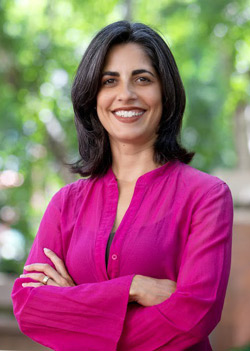
Beasley School of Law
Why does this debate around immigration matter?
It’s intensifying the competing visions of what the country stands for that were brought to the fore during campaigns and the election. People who didn’t agree with Trump’s vision and are now seeing it played out on the ground are responding to it. There are huge international ramifications, too. The United States resettles by far the largest number of refugees of any country in the world, so if we stop resettling, it’ll be a huge blow to the international system. For the Syrians right now, there are few alternatives. Their neighboring countries, Lebanon, Jordan, Turkey, are really struggling to manage capacity. There’s also a lot of outrage internationally about the idea that this is a Muslim ban. It doesn’t paint a very positive picture of the United States. For global leadership, it’s not a great example. It enables other authoritarian regimes to do whatever they want and justify it in the name of national security.
What’s one aspect of the immigration order and debate that’s not being covered in the media?
No one’s focusing on Trump’s Jan. 25 executive orders on interior public safety and border security. The Department of Homeland Security is going to start enforcing those orders, and that’s really going to tear families apart. The so-called “Muslim ban” is about people entering the United States. The interior public safety and border security orders are about people who are already in the United States, including expanding the expedited removal process throughout the country. They’re planning to reinstate “Secure Communities,” which is a program that requires local and state law enforcement organizations to share information on people held in prisons and jails with Immigrations and Customs Enforcement. They want to defund sanctuary cities, though it’s not clear they’ll be able to. The border security order is also focused on building a wall, constructing more detention facilities, detaining anyone who comes in without papers, and adding border patrol agents. We’ve already started hearing stories from border states about raids on local communities, and more enforcement is sure to come throughout the country.
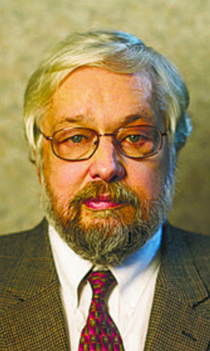
Christopher Harper, professor of journalism
School of Media and Communication
Why does this debate around immigration matter?
President Trump promised during the campaign that he would deal with immigration. He is simply fulfilling that promise—something many politicians fail to do once they are elected.
There isn’t much of a debate. Much of what we are seeing is an emotional response to poor reporting and anti-Trump demonstrators. I am certain that some of the protesters have heartfelt points of view about the immigration changes. But these changes are temporary. They affected about one-half of 1 percent of more than 10 million visas granted every year. Moreover, the countries involved are not friends of the United States; for the most part, they are avowed enemies. A short break in the issuing of visas to reevaluate the system is a good thing to do—not a bad one.
What’s one aspect of the immigration order and debate that’s not being covered in the media?
I wish there was just one. The media have done a dreadful job of covering the issue. The protests have been overblown in terms of importance; the “horror” stories are few and far between. I think the media have to take a breath and look at how partisan their coverage has been.
Moving forward, I think it’s important to look at a few things:
- The Department of State issues visas as part of the executive branch of government. The president is head of the executive branch. His executive order is clearly legal. But the debate is not about the law. It has become an emotional and partisan one that has been swept into the courts. That is bad. The notion that the current legal debate centers on the economic impact of the temporary ban on colleges and universities is simply absurd.
- The media need to look at how the influx of refugees in European countries, such as Sweden and Germany, has created major problems for the refugees and those countries. A key question the media should ask is why can’t the refugees from Arab countries, for example, go to countries like Saudi Arabia, Kuwait, the United Arab Emirates and Oman, where the language and culture are similar? How many Iranian refugees are there? Very few. Why can’t African countries take more Sudanese and Somali refugees? The cultural differences between the seven nations and the United States are huge. Data show that many of the people from these countries, with the possible exception of Iran and Iraq, do not have particularly good lives in America.
Peter Spiro, Charles R. Weiner Professor of Law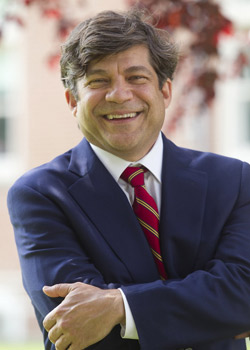
Beasley School of Law
Why does this debate around immigration matter?
It’s unprecedented for the president to undertake through his own authority this kind of blanket exclusion of a large number of non-citizens who would otherwise be eligible for admission into the United States. The travel ban will test the limits of the president’s authority in the immigration context under the Constitution. Not since the Nixon Administration, at least, have we witnessed so dramatic a showdown between the president and the courts.
What’s one aspect of the immigration order and debate that’s not being covered in the media?
The media have yet to fully explore the fact that the law could be applied variably to different components of the executive order. Authority in this context isn’t an absolute quantity, and it doesn’t apply in the same way to all classes of noncitizens. Some classes of noncitizens enjoy much stronger claims to constitutional protections than others—a permanent resident, for instance, versus an individual abroad who would be eligible for a visa but has yet to apply. As litigation goes through the next round, there may be some components of the executive order that are struck down and others that are sustained. Those nuances are going to be consequential. It’s not surprising that the media wouldn’t yet have caught up to these nuances. As courts start focusing on them, the media will pick up on them. In the wake of the decision of the U.S. Court of Appeals for the Ninth Circuit last week to maintain a trial court’s suspension of the travel ban, we will begin to see more “in the weeds” coverage of the different contexts in which the ban applies.
—Kara Goldman and Morgan Zalot
